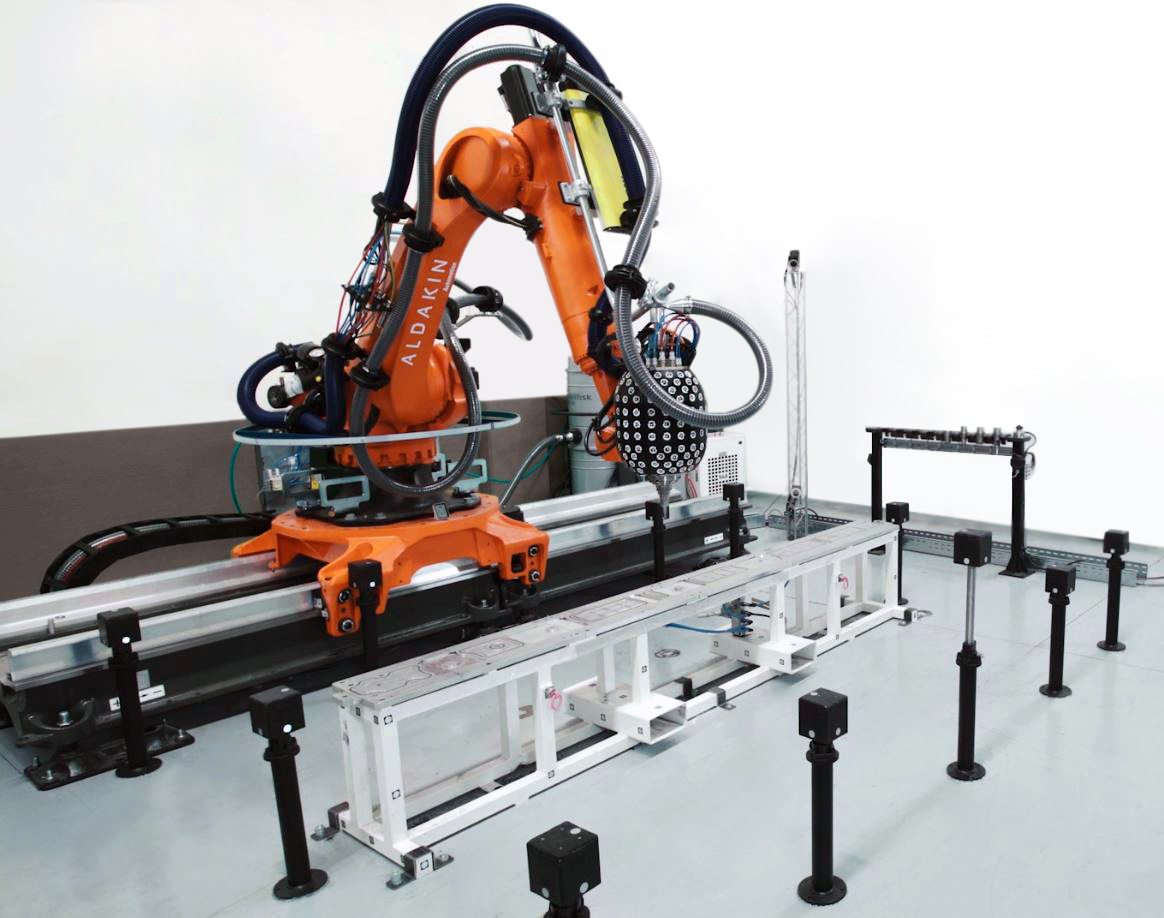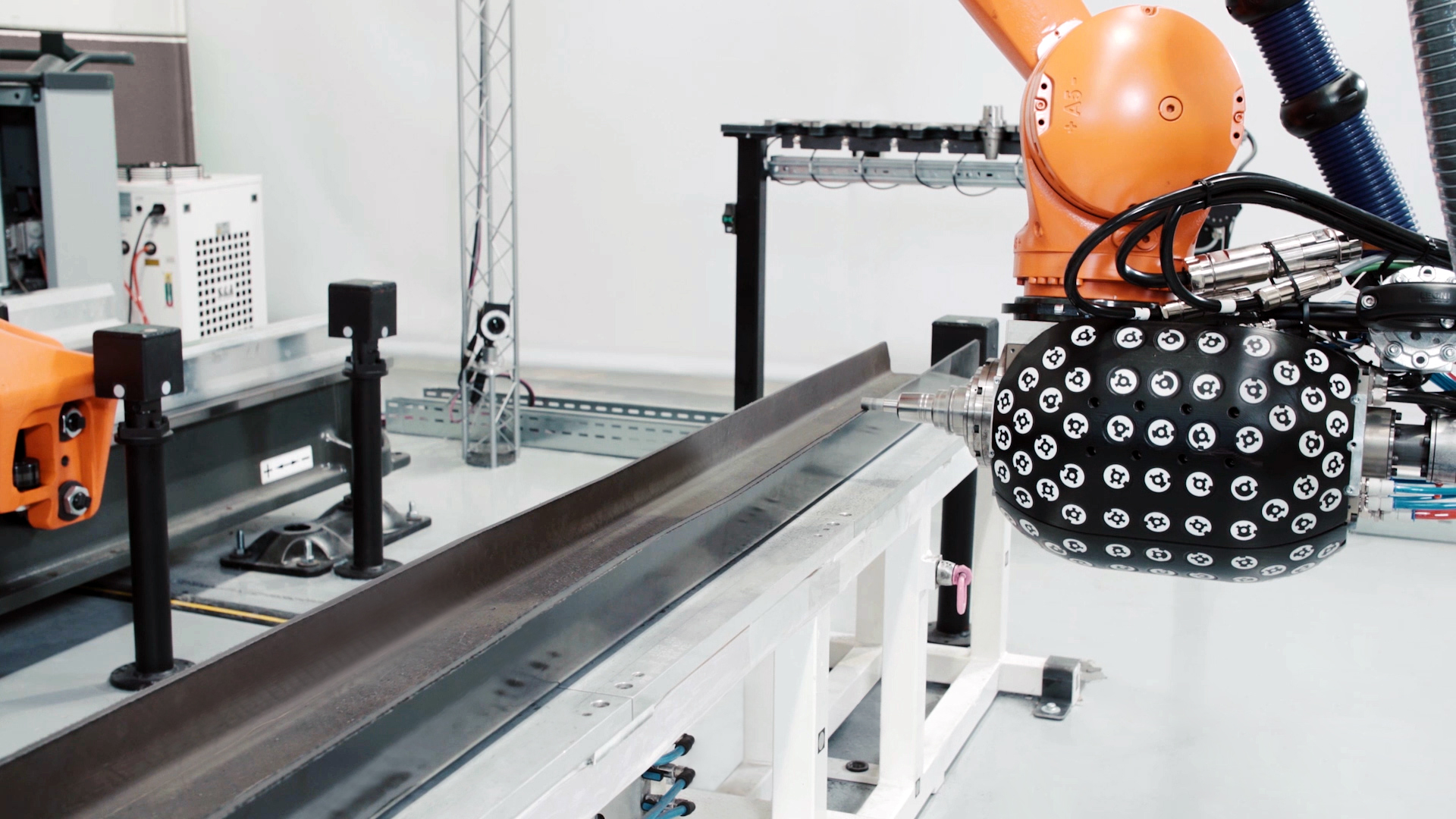Last news about IDEKO.

The research center IDEKO has developed a groundbreaking technology that aspirates harmful particles generated during cutting processes of carbon fiber or glass composite materials.
Designed in the European Fibremach project, the equipment provides a great increase in precision and efficiency in machining and integrates a monitoring system that acts during the process to guarantee the quality of the parts.
The European Association for Manufacturing Technologies (CECIMO) has awarded the project in the first edition of the Machine Tools Innovation Award.
Carbon or glass fibre composite parts are becoming increasingly common in sectors such as aeronautics, automotive, construction and wind power due to their lightness and high strength. For example, in electric vehicles, these composites allow the car to be lighter in order to reduce consumption.
For precise assembly of these parts, it is necessary to cut and drill the composite parts. However, during these machining processes a large amount of dust is generated which is harmful to health and can cause respiratory difficulties, dermatitis, conjunctivitis and some of the chemical components are even classified as potentially carcinogenic.
There are currently two methods for carrying out these machining processes. One is by milling machines, which offer high precision but require considerable investment. The other method involves manual operations, with a consequent reduction in precision and increased exposure of the operators to toxic dust, noise and vibration.
With the challenge of limiting this exposure as much as possible and offering the European manufacturing industry a cleaner and safer machining alternative, the IDEKO research centre has developed and validated within the framework of the European Fibremach project a new robotic solution capable of machining composite parts with the required precision and with a reduced investment.
The equipment also incorporates a patented technology by IDEKO in the workhead that allows 100% of the toxic dust particles to be sucked from the tool itself, preventing them from floating in the air.
‘The dust produced in these processes is not only harmful to people, but
also to the useful life of the machines themselves due to its abrasive and
electrically conductive properties. In the long term, this dust ends up
damaging the mechanical components of the machines and can cause faults in the
electronic systems, which is why it is essential for these manufacturers to
have a solution with these characteristics", highlights Asier Barrios,
IDEKO's project manager. 
Precision and control
The chip and dust extraction technology is just one of the innovations developed during the project, which has resulted in a more precise and highly productive robotic cell for machining composite materials.
IDEKO's four research groups have also worked on improving the precision and control of the robot machining process to meet the needs and demands of the manufacturer of composite parts.
IDEKO has developed an artificial vision system that increases the robot's precision, using various cameras and photogrammetric algorithms.
“The developed robot continuously and at high speed corrects its position and orientation based on camera measurements. This allows machining with an accuracy of between 0.1 and 0.2 millimeters over the robot's entire working area, which improves the robot's accuracy by a factor of four times its original capacity”, adds Asier Barrios.
In addition, to guarantee the quality of the machined parts, a continuous vibration monitoring and control system has been developed. The vibrations generated during machining are measured and analyzed by means of sensors integrated in the robot. If excessive vibrations are detected, which can be caused by poorly clamped tools or worn tools, the robot automatically modifies its feed and rotational speed of the cutting tool to reduce vibrations and prevent damage to the workpiece.
All the information on the status of the robot and the machining process is thus recorded in the cloud. This information can be consulted to analyze exactly how each part has been machined, and even allows the integration of Artificial Intelligence functions that work on the data in the cloud to optimize productivity.
This robotic architecture offers the possibility of easily scaling the solution by adapting the created systems to robots of different sizes to meet the need to machine parts of varying volumes. "This will enable companies that manually mill, rechamfer, and drill composite parts, to adopt a robotic solution that protects their workers and increases productivity," concludes Barrios.
Manufacturing Innovation Award
The European Association of Manufacturing Technologies CECIMO recognized the developments of the Fibremach project in 2023 at the first Machine Tools Innovation Award.
Specifically, it received the first prize from the public and the jury for the best innovation in the machine tool sector in 2023, recognising IDEKO's pioneering contribution to European industry in moving towards sustainable manufacturing and the adoption of clean technologies.
Finished in 2023, Fibremach has received funding from the European Union through the Horizon 2020 programme and, in addition to IDEKO, the consortium has been formed, among others, by ALDAKIN group and AERNNOVA company.